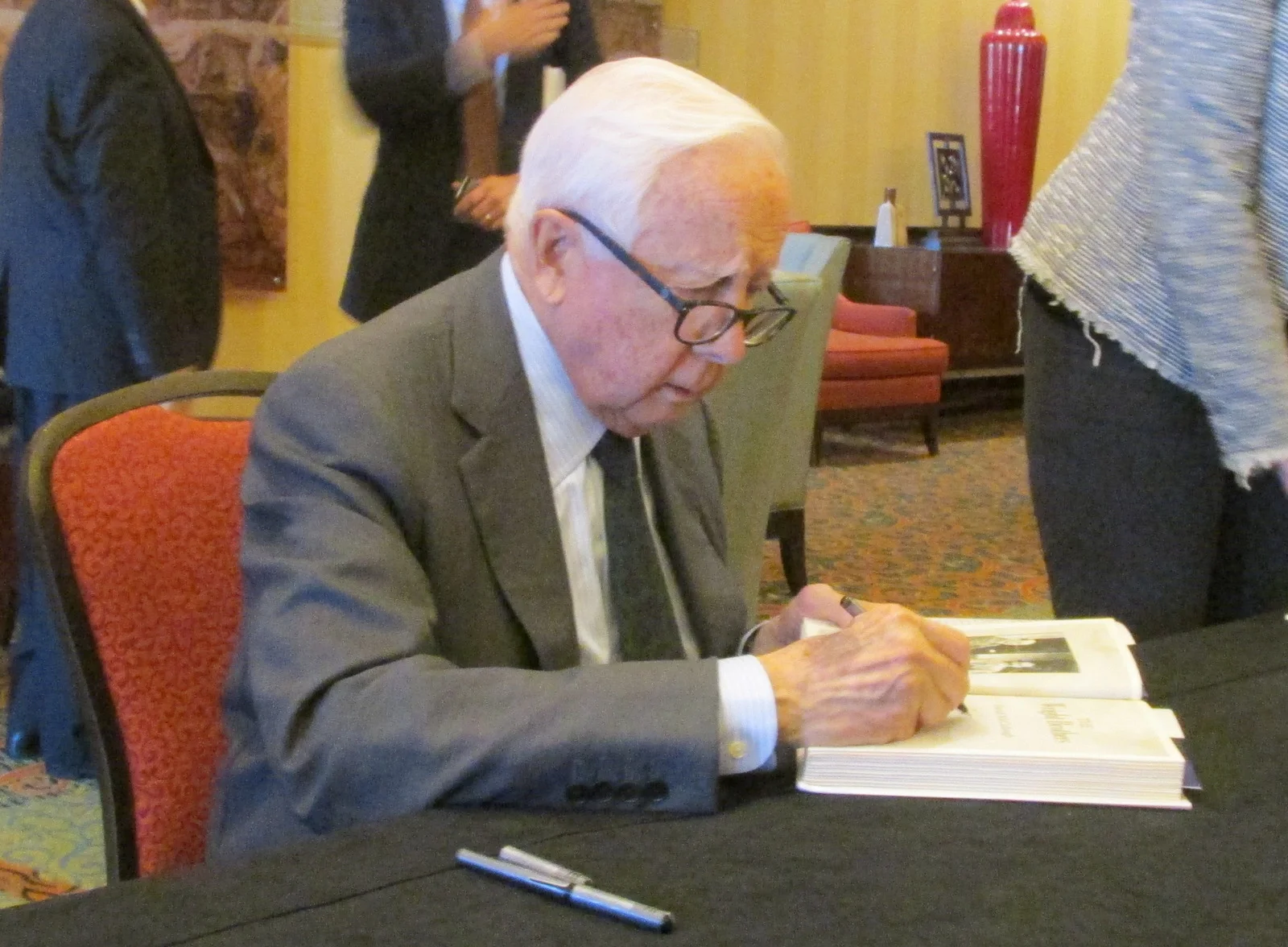A friend alerted me to author David McCullough’s visit to Montgomery a few years ago, and I was happy to attend the Air University Foundation luncheon with him. McCullough was invited to talk about his recently-published book on the Wright brothers. I’d not know that the Wrights visited Montgomery and established a flying school there when aviation was young.
McCullough won Pulitzers for “Truman” and “John Adams.”
I told Mr. McCullough in the book-signing line that I learned to love John Adams through his book. It’s on my top ten list of all time.
“Oh, what’s not to like about John Adams?” he replied with a smile.
Well, many people didn’t like John Adams. He was our first president not to be reelected, and in such a huff that he went home to Boston the night before his successor’s inauguration. Of course, being president between George Washington and Thomas Jefferson would set one up for failure!
McCullough’s book is based largely on letters John and Abigail Adams wrote to each other and kept. These letters reveal wonderful history. I ponder what history this generation is leaving since letter-writing seems to be a thing of the past. Modern students often need to be reminded that formal papers must be written with good grammar and proper capitalization, unlike hastily-sent emails or texts. And many have long forgotten the art of the “bread and butter” note sent to people who’ve done kind things for us.
Christians have been encouraged for some 2000 years through letters written by people of faith. The apostle Paul wrote 13 we have, and at least one we don’t have (Colossians 4:16), addressing specific churches or individuals. Paul may not have known his letters would be part of Holy Scripture or he might not have called the Cretans “lazy gluttons”! (Titus 1:12-13). Eight letters are called general letters because they were written by five men to the church at large.
God chose human authors to write letters to inspire and instruct his church.
A retired physician told me about receiving an unexpected check through the mail. He decided to divide the money as gifts to his five children and, he said, this was a good prompt to write letters to each expressing his love and hopes for them.
Other parents can emulate him. Perhaps we don’t have “mailbox money” to share, but we can share our hearts. And grandparents can also use letters to encourage our grandchildren. And there are plenty of people we know who would benefit from a written word of blessing. I’m convinced many letters will likely be preserved and inspire others long after we, as Hamlet said, “shuffle off this mortal coil.”

